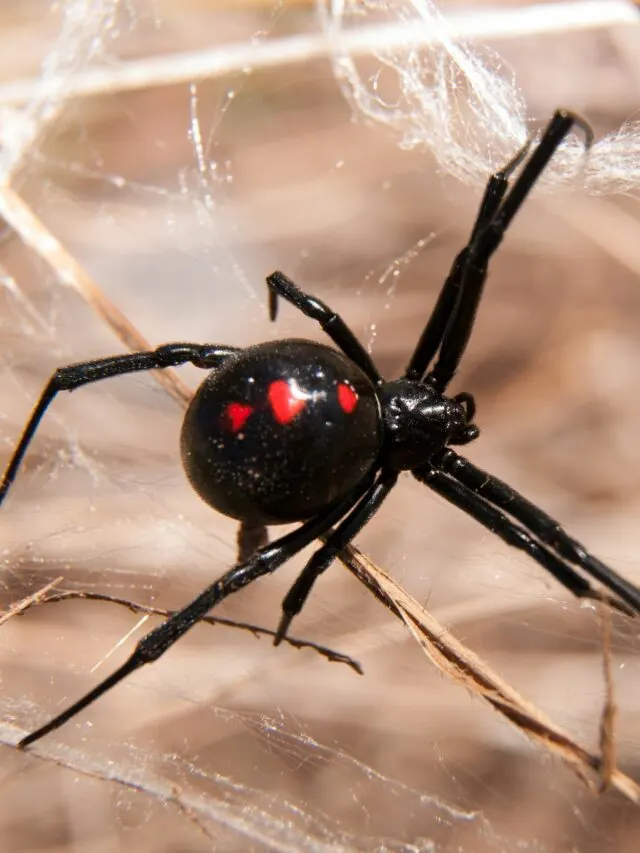Are you afraid of spiders or have arachnophobia? If the answer is yes, living in Florida isn’t the best place for you. From Black Widows and Brown Recluse to Wolf Spiders and Hobo Spiders, plenty of dangerous eight-legged predators lurk around in Florida’s hot trees, dark attics, damp basements, and outdoor shrubs.
But why does it matter so much when it comes to spiders? Knowing about these nasty critters is critical to understanding their danger potential and how to keep yourself safe in your own home. Let’s uncover the truth behind Florida’s most feared poisonous spiders!
For comprehensive information on the various types of spiders found in Florida, click here to expand your knowledge and understanding.
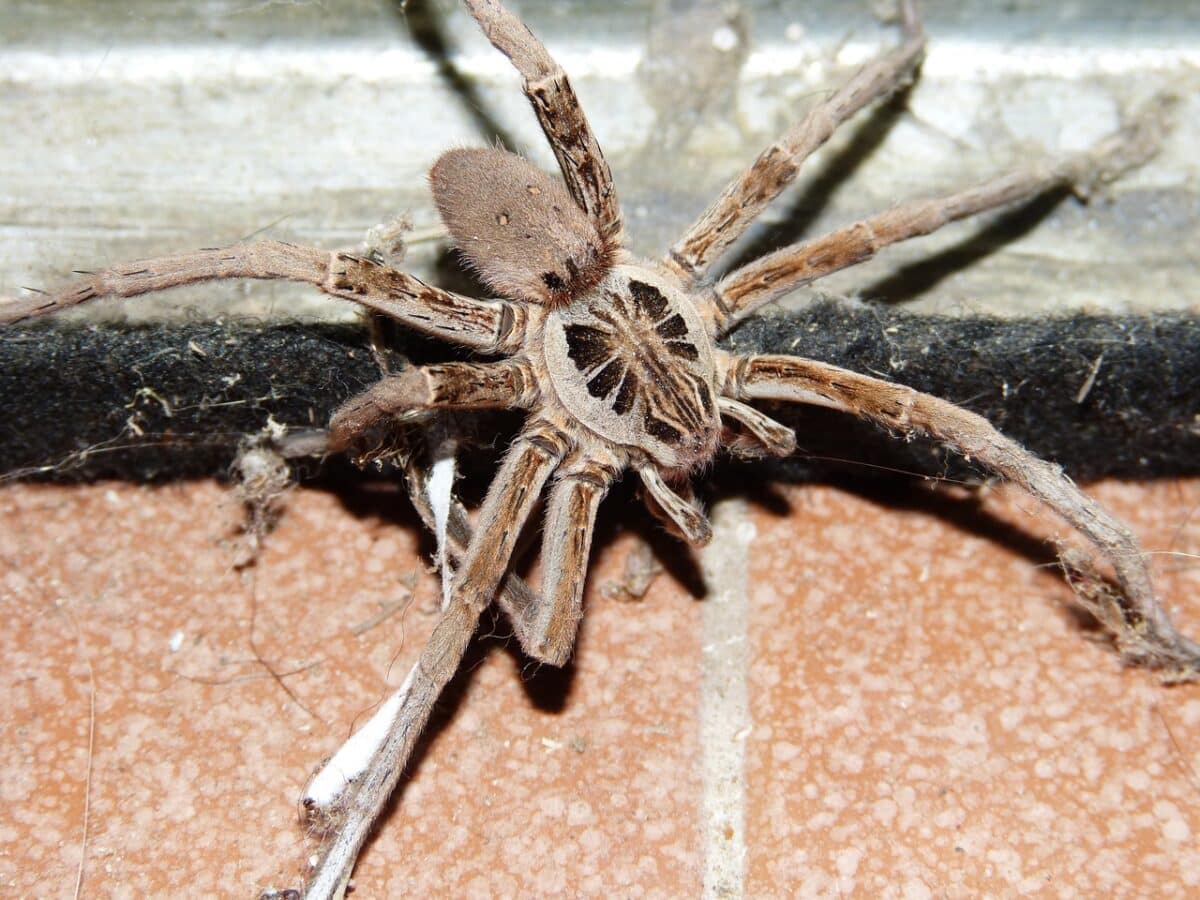
Skip ahead to any section below!
A Look At Florida’s Most Dangerous Venomous Spiders
Florida is home to several venomous spiders, including the notorious black widow, brown recluse, and wolf spider. These creatures are known to cause severe health problems or even death in some cases.
The Black Widow
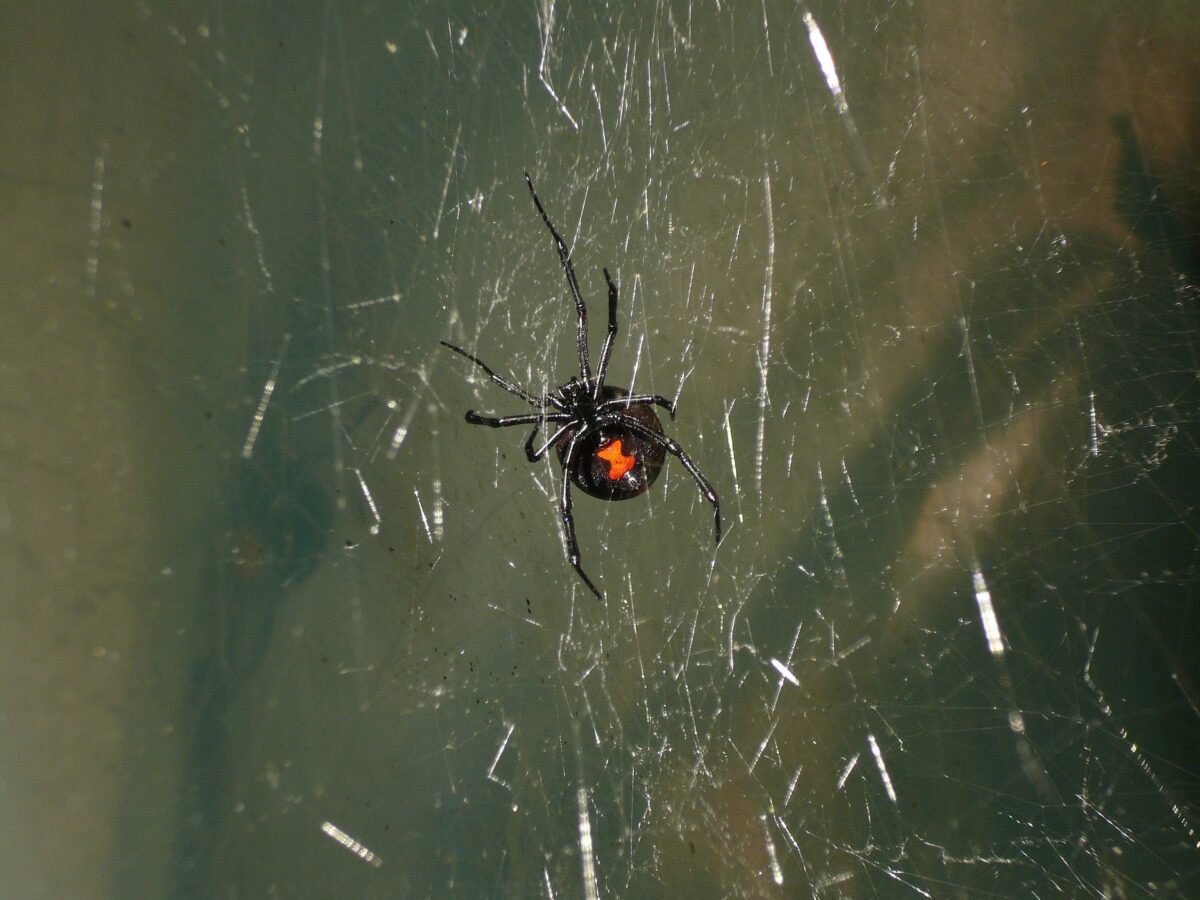
The most common venomous spider in Florida has a glossy black body and a noteworthy red hourglass shape on its abdomen. Its bite causes muscle cramps, spasms, abdominal pain, and other severe symptoms.
The Brown Recluse
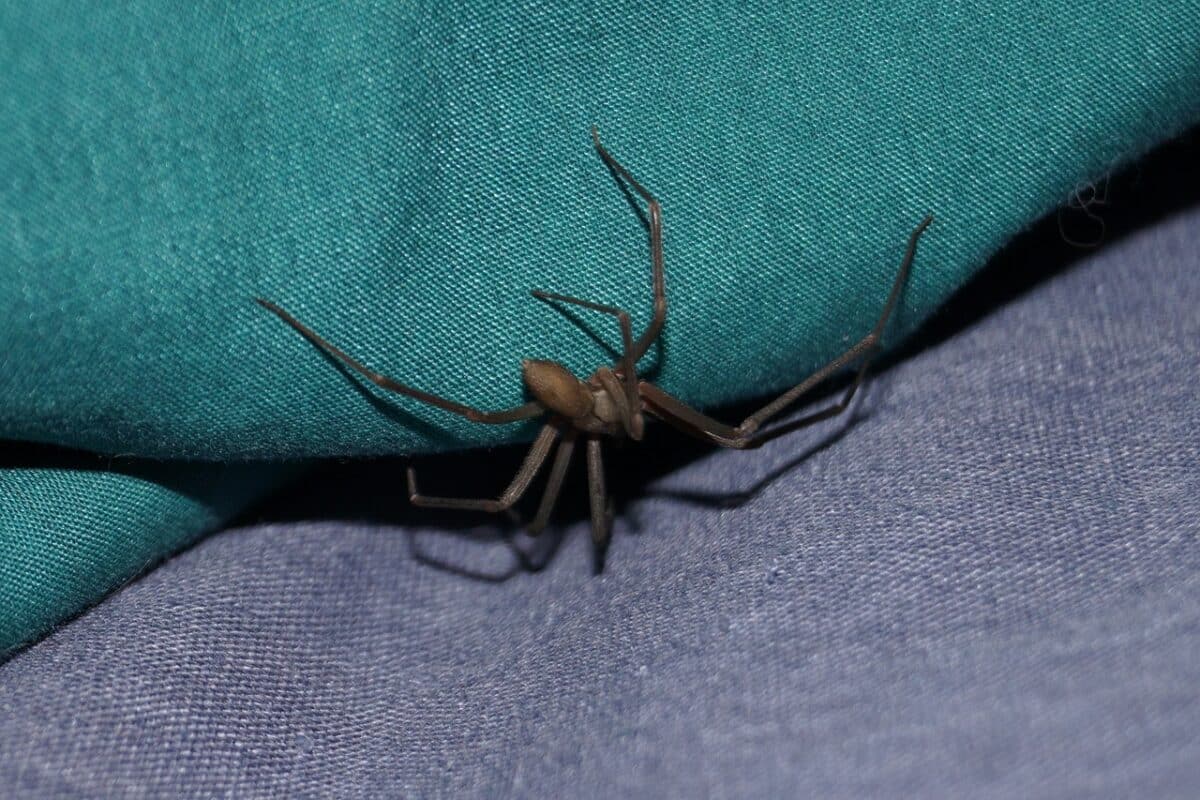
The brown recluse is another venomous spider that can be found in Florida. Its bite can cause necrosis, the death of cells and tissues in the affected area.
The Wolf Spider
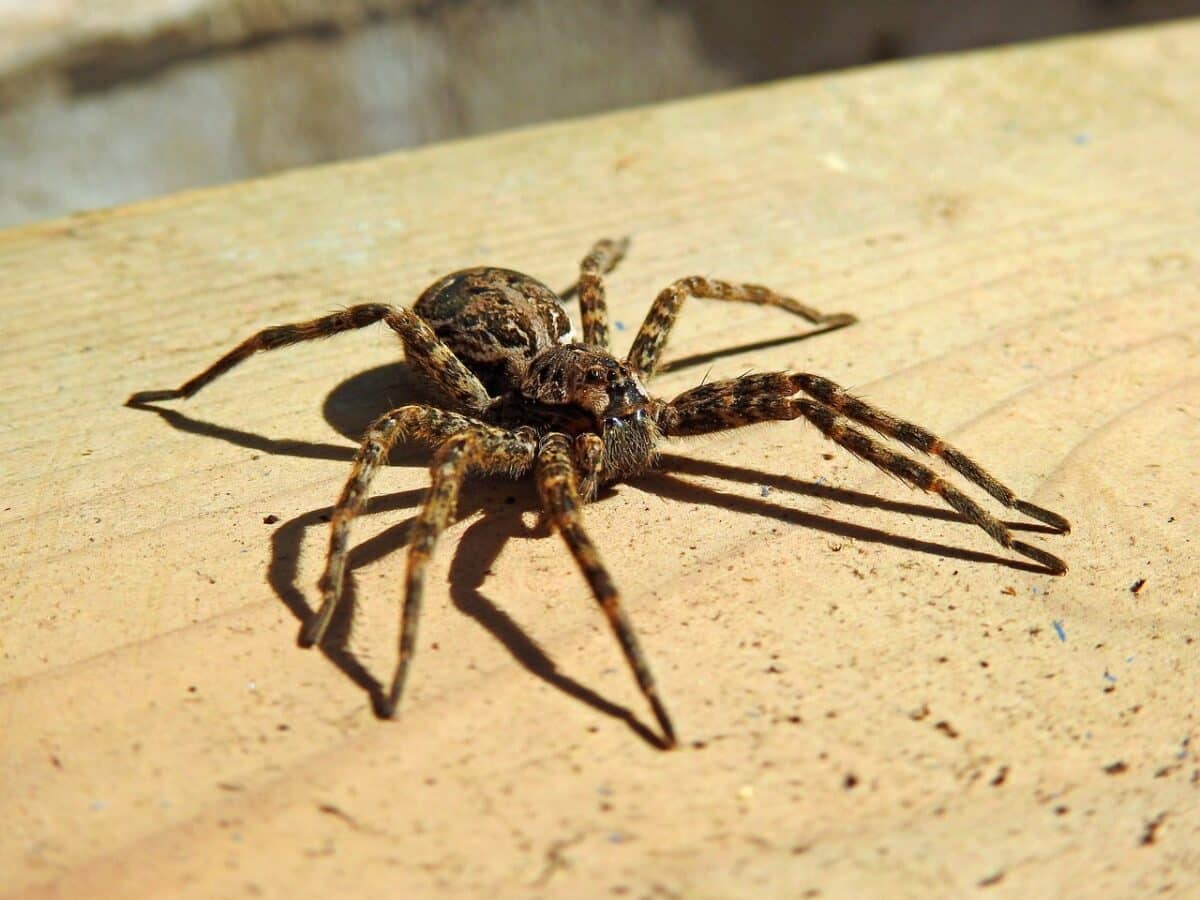
Finally, the wolf spider, known for its large size, can be aggressive if provoked, and its bite can lead to mild to moderate symptoms. It is essential to be cautious and avoid disturbing these spiders to prevent potential harm. In case of a spider bite, seek medical attention immediately.
Check out: The Tables Turn: Watch As The Tortoise Outsmarts The Eagle.
How To Identify Florida’s Venomous Spiders
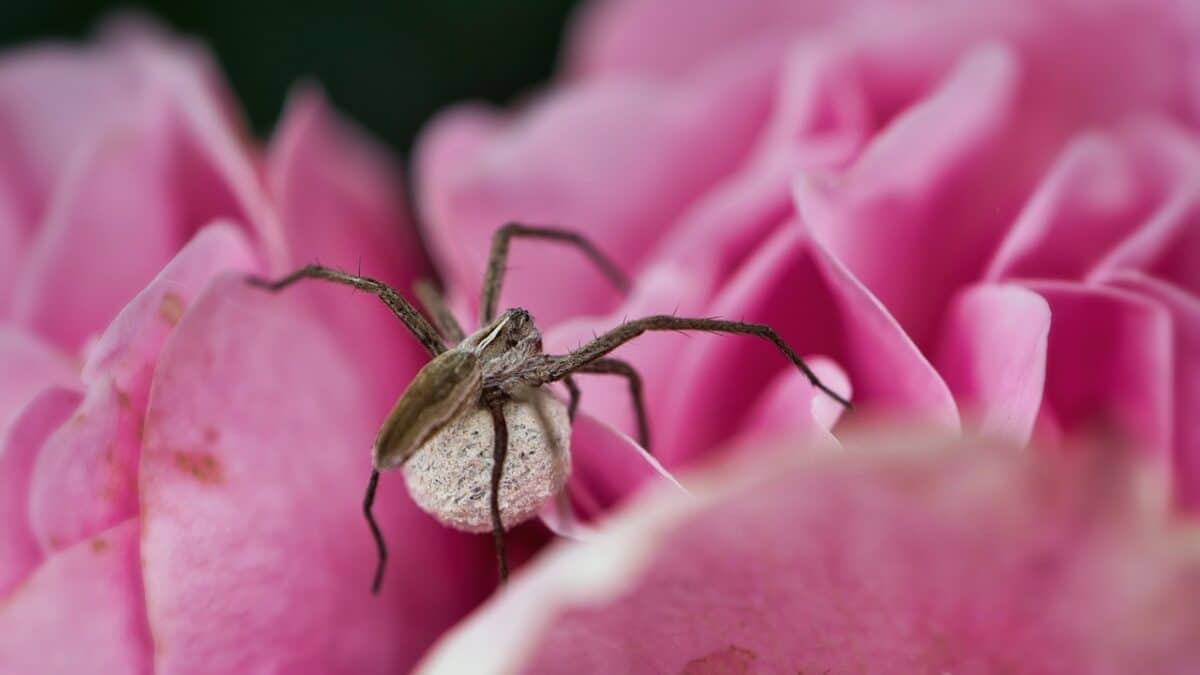
Florida is home to various spider species, including some nasty ones. The most common venomous spider species in Florida include the black widow spider, brown recluse spider, and the southern black widow spider. Identifying these spiders is essential when it comes to avoiding their venomous bites.
- Firstly, brown recluse spiders can be identified by violin-shaped marks on their bodies and six eyes instead of eight. These spiders are usually brown and are known to hide in dark and quiet places.
- On the other hand, black widow spiders are known for their shiny black body with red or orange markings. Female black widows are more venomous than males, but both have distinctive hourglass-shaped marks on their bellies.
- Finally, the southern black widow spider is identified by its black or dark brown color with a red hourglass marking on its underbelly. These spiders are commonly found in Florida’s gardens, sheds, and woodpiles.
It is important to note that not all spiders are dangerous, and some may look similar to venomous species. Therefore, if you are unsure of the spider’s identity, it is best to leave it alone and seek professional help.
What To Do if You Find a Spider In Your Home
Spiders are one of the most common insects that we find in our homes. They are not only creepy but also feared by many people. If you have ever seen a spider in your home, you know how scary it can be.
However, knowing that most spiders do not harm humans is essential. They are usually harmless and helpful, as they can help control the population of other insects in your home. That being said, if you find a spider in your home and want to get rid of it, you can do a few things.
- First and foremost, avoid killing the spider unless it’s necessary.
- You can use a cup and paper to trap the spider and release it outside gently.
- You can also use a vacuum cleaner to remove the spider but empty the vacuum outside your home.
- If you have a lot of spiders in your home, it may be a sign of an insect infestation, so it’s best to call a professional pest control company to take care of the problem.
How To Prevent Venomous Spiders from Entering Your Home
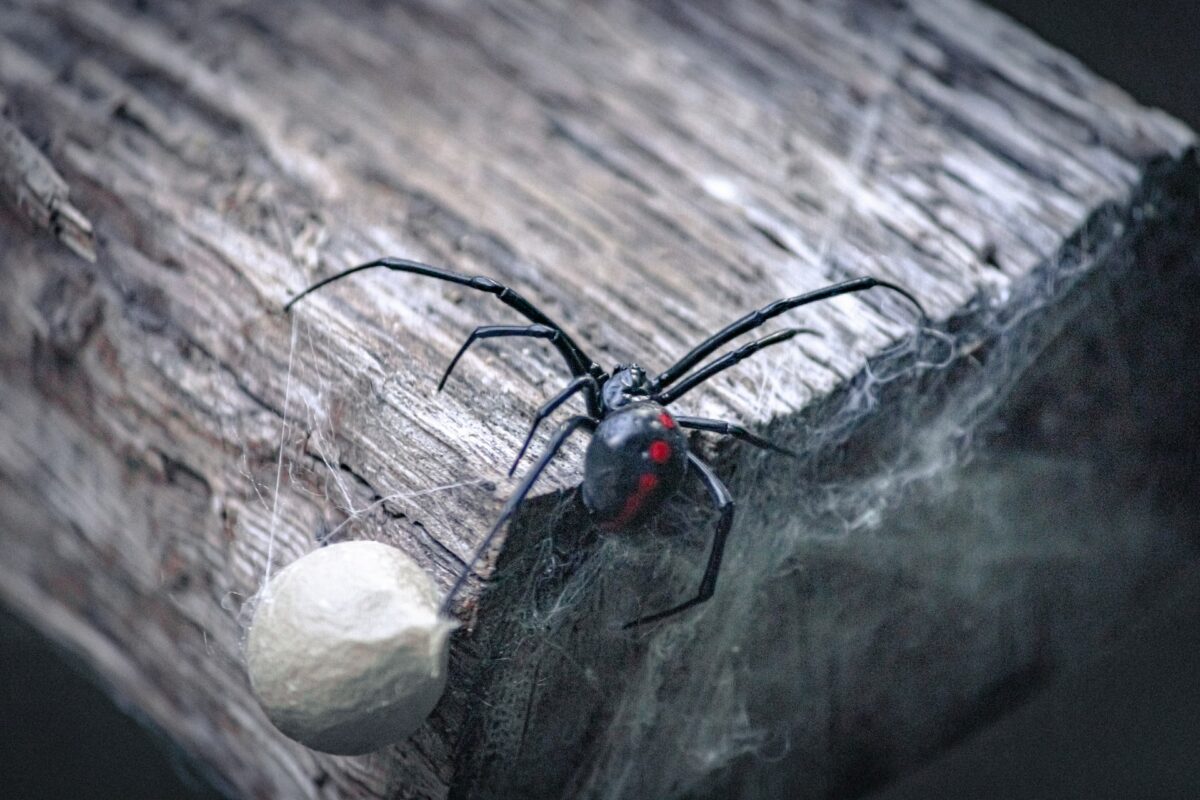
Venomous spiders are something that nobody wants to find inside their homes. Not only can they be potentially dangerous, but they can also cause a lot of anxiety and stress. Fortunately, there are several steps that you can put in place to prevent venomous spiders from coming into your home and ensure that your living space remains a safe and comfortable place to be.
Firstly, try to keep your home clean and tidy. Spiders love dark and cluttered areas, so by eliminating these types of spaces, you can reduce the chances of them making their way inside. Additionally, seal any cracks or gaps in your home’s foundation, windows, and doors. This can prevent spiders (as well as other unwanted pests) from sneaking their way into your living space.
Another way to keep venomous spiders out is to use natural spider repellents. Essential oils like peppermint, tea tree, and cinnamon are all known for repelling spiders. Mix a few drops of these oils with water and spray around your home. This will not only keep spiders away, but it will also leave your home smelling fresh and clean.
Following these simple tips, you can keep venomous spiders from entering your home and preserve a safe and comfortable living environment.
Tips for Keeping Away Venomous Spiders
Venomous spiders can be dangerous and sometimes even deadly. However, there are specific steps you can take to prevent an encounter with these arachnids.
- Keep your living space clean and tidy to discourage spiders from building webs and laying eggs. Regularly vacuum floors and remove any spider webs you come across.
- Invest in a high-quality insecticide spray designed explicitly for eliminating spiders. Apply the spray to areas where spiders are likely to hide, such as corners and crevices.
- Seal gaps and cracks around doors and windows to prevent spiders from entering your home.
- Avoid keeping piles of wood, leaves, and debris near your home, as they attract spiders. Dispose of them properly and maintain a clear perimeter around your house.
- Remember to take necessary precautions when handling or removing spiders. If you are uncertain about a spider’s evil nature, it’s best to seek professional assistance to ensure your safety.
What to Do if You Are Bitten by a Venomous Spider in Florida
Venomous spider bites are common in Florida, and if you encounter one, it’s essential to know what to do. The first step is to stay calm and try to identify the type of spider that bit you.
The most dangerous spiders in Florida are the Black Widow and the Brown Recluse, and their bites can cause severe pain, muscle cramps, and other problematic symptoms. If you suspect you have been bitten by one of these spiders, seek medical attention immediately.
Meanwhile, limit your movement and keep the affected limb elevated to reduce the spread of venom. Ice packs can also be applied to ease the pain. Do not attempt to suck out the poison or cut the wound in any way, as this can further spread the venom, causing more harm to your body.
Also, avoiding pain relievers like aspirin, Advil, or ibuprofen is essential. These medications can increase bleeding and make the symptoms worse. In conclusion, if a venomous spider bites you, it’s crucial to stay calm, seek medical assistance immediately, and avoid home remedies, as this can worsen the symptoms.
Key Points
| Florida is home to several venomous spiders, including the notorious black widow, brown recluse, and wolf spider. |
| Brown recluse spiders can be identified by a violin-shaped mark on their body and six eyes instead of eight. |
| Black widow spiders are known for their shiny black body with red or orange markings. |
| First and foremost, avoid killing the spider unless it’s necessary. |
| Remember to take necessary precautions when handling or removing spiders. |
The Bottom Line
In conclusion, it can be a frightening experience to come across a venomous spider in your home. The most important thing to remember is that prevention is key! Inspect your home for any spiders or infestations of spider webs, and take the necessary measures as suggested in this blog post.
Furthermore, you want to create an environment where no venomous spiders will find refuge in your space. Doing so can avoid potential contact with these spiders while keeping your family safe from harm. It’s also helpful to familiarize yourself with these spiders’ appearance so you know how to identify them. Taking suitable precautions today can help reduce the risks tomorrow!
If you enjoyed this article as much as me, check out our related article links below.
Next up:
- Discover San Francisco’s Most Dangerous Animals
- Wildlife Spotlights: Gorilla And Anaconda In Focus
- Great White Shark Vs. Bull Shark
- Michael Phelps Vs. Dolphin: A Race For Aquatic Supremacy
- Eagle’s Aerial Acrobatics: The Hawk Becomes The Hunted
- Jack Russell Learns How To Fly - April 26, 2024
- Watch: Never Approach A Bison in Yellowstone National Park - April 26, 2024
- Watch: Lizard Greets Man like a Dog! - April 25, 2024

